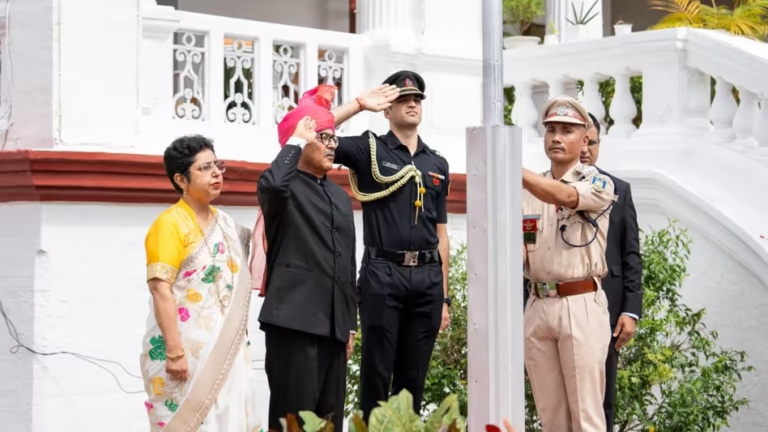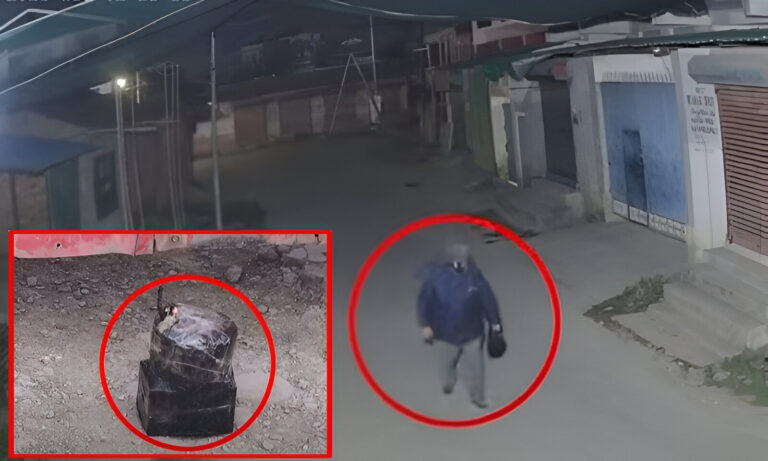Manipur’s Cross-Border Security: Army Chief’s Response to Infiltrator Claims
Summary of the News Article
In a recent update, the Indian Army Chief dismissed claims that 900 anti-national infiltrators from Myanmar have entered Manipur. He emphasized the vigilance of security forces along the India-Myanmar border, ensuring that cross-border infiltrations are being dealt with effectively. The Army’s “Ek ke saath ek free” (one plus one free) initiative symbolizes the army’s rapid response to every threat. The chief assured the public of continuous border security operations to prevent any major national security breaches.
A Deep Dive into Manipur’s Border Security and the Army Chief’s Statement on Myanmar Infiltrators
Introduction: The Myanmar-Manipur Border Dynamics
Manipur, a northeastern state of India, shares a long and porous border with Myanmar, which often makes it vulnerable to illegal cross-border activities. In recent times, allegations surfaced regarding a massive infiltration of over 900 anti-national elements from Myanmar into Manipur. Given the geopolitical tensions in the region, such reports sparked significant concerns about national security and border management.
However, General Manoj Pande, the Chief of Army Staff, recently made a firm statement dismissing these claims. According to him, security forces are actively monitoring the India-Myanmar border, and any infiltration attempts are being countered swiftly. His remark, “Ek ke saath ek free,” highlights the Army’s swift and effective response mechanisms, ensuring that no single threat goes unaddressed.
But what does this infiltration claim mean for Manipur, and how is the Indian Army tackling the security challenges along the border?
The Infiltration Allegations: Separating Facts from Speculation
The claim that over 900 anti-national infiltrators have entered Manipur from Myanmar raised immediate alarm bells. Given the history of insurgency in the northeastern region, any such infiltration is perceived as a significant threat to national security. Various media reports initially highlighted these concerns, suggesting that the infiltrators could destabilize peace in the region.
But is this fear justified? According to General Pande, the reports were greatly exaggerated. While it’s true that some illegal movements across the border occur due to the close ethnic and familial ties shared by the communities on either side, the scale of infiltration, as reported by some sources, is not accurate.
Manipur’s Strategic Location and Security Concerns
Manipur’s geographic location makes it a critical region for India’s border security strategy. The state shares a 398-kilometer-long border with Myanmar, much of which is remote and difficult to patrol. This has often made it a conduit for insurgents, smugglers, and illegal migrants. Additionally, the socio-political unrest in Myanmar has contributed to an increase in cross-border activity.
Given the proximity to Myanmar, the state has historically dealt with insurgency-related challenges, some of which have been fueled by external support. Therefore, any reports of large-scale infiltrations are naturally concerning for both the local population and national security agencies.
However, the Indian Army’s border operations are designed to tackle these very issues. As per General Pande’s statement, troops stationed along the border have a robust mechanism in place to deal with any infiltration attempts. The “one plus one free” approach mentioned by the Army Chief underlines the proactive stance adopted by the security forces — ensuring a swift response to every threat.
India-Myanmar Border: The Role of the Indian Army and Assam Rifles
The Indian Army and Assam Rifles play a crucial role in securing the India-Myanmar border. Both forces are well-equipped and stationed in strategic areas to prevent illegal crossings and monitor any suspicious movements. Assam Rifles, in particular, has been instrumental in maintaining peace in the region, given its expertise in counter-insurgency and jungle warfare operations.
Moreover, with the ongoing political turmoil in Myanmar, the Indian government has ramped up its security efforts along the border. Intelligence gathering, night surveillance, and coordination with local communities have become integral parts of the strategy to prevent any anti-national elements from entering Indian territory.
“Ek ke Saath Ek Free” — What Does It Mean for Border Security?
The phrase “Ek ke saath ek free,” used by the Army Chief, may sound lighthearted, but it holds a deeper significance in the context of military strategy. Essentially, it emphasizes that for every action or threat encountered at the border, there will be an equally strong and immediate counteraction. This proactive approach ensures that no potential security threat goes unchecked, creating a deterrent for would-be infiltrators.
This mindset reflects the overall preparedness of the Indian Army and Assam Rifles along the border. It sends a strong message to insurgent groups and external entities that the Indian forces are always ready and capable of addressing any threats to national security.
Challenges in Securing the India-Myanmar Border
Despite the Army’s strong stance, securing the long and porous India-Myanmar border is no easy task. Several factors contribute to the challenges faced by the security forces:
- Difficult Terrain: The border runs through dense forests, mountains, and rivers, making it difficult to patrol and monitor consistently.
- Ethnic Ties Across Borders: Many ethnic communities live on both sides of the border, with families having close cross-border ties. This complicates distinguishing between genuine cross-border travelers and potential infiltrators.
- Insurgency Movements: Several insurgent groups operate in the northeastern region, often seeking shelter across the border in Myanmar. These groups have exploited the porous border to carry out attacks on Indian soil and retreat back into Myanmar.
- Smuggling Activities: The border is also a hotspot for smuggling operations, including arms, drugs, and contraband goods. Security forces regularly deal with these illegal activities, which further complicates border management.
The Role of Public Cooperation and Local Intelligence
While the Indian Army and Assam Rifles continue their efforts, public cooperation and local intelligence play a significant role in maintaining security. The border communities in Manipur are often the first to notice any unusual movements or activities. Their cooperation in reporting suspicious individuals or events can greatly assist the security forces in addressing potential threats.
In recent years, the Indian government has also worked to strengthen ties with local communities through development projects and outreach programs. These initiatives are aimed at fostering a sense of trust and cooperation between the security forces and the local population.
Looking Ahead: Strengthening Border Security for the Future
As geopolitical tensions in Myanmar continue to influence border dynamics, India must remain vigilant in securing its northeastern frontier. The current situation in Manipur underscores the importance of robust security measures, efficient intelligence gathering, and community cooperation.
The Indian government has already taken steps to strengthen infrastructure along the border, including the construction of roads, installation of surveillance equipment, and increased troop deployment. However, long-term solutions will require not just military preparedness but also diplomatic efforts with neighboring Myanmar to address cross-border insurgency and smuggling issues.
Conclusion: Ensuring a Safe and Secure Future for Manipur
Manipur’s proximity to Myanmar presents both challenges and opportunities. While the recent infiltration claims have raised concerns, the Indian Army’s swift response and proactive stance provide reassurance that the situation is under control. General Pande’s statement serves as a reminder that national security remains a top priority, and the forces are well-prepared to tackle any challenges that may arise.
For the people of Manipur and India as a whole, the message is clear: while threats may persist, the nation’s defense apparatus is vigilant and ready to act. The key to sustained peace and security lies in continued cooperation between the government, security forces, and local communities.
FAQs
- What does “Ek ke saath ek free” mean in the context of border security?
It refers to the Indian Army’s proactive response strategy, where every threat encountered is met with an immediate and strong counteraction to ensure no breach goes unchecked. - How significant is the India-Myanmar border in terms of security?
The India-Myanmar border is critical due to its length, difficult terrain, and the presence of insurgent groups. It remains a key focus area for national security operations. - Has there been a large-scale infiltration in Manipur recently?
According to the Army Chief, the claims of 900 infiltrators are exaggerated, and no such large-scale infiltration has been detected, though vigilance remains high. - What role do Assam Rifles play in Manipur’s security?
Assam Rifles are a crucial part of maintaining peace in Manipur, particularly in counter-insurgency operations and monitoring border activities. - What steps are being taken to prevent future infiltrations?
The government is enhancing border infrastructure, deploying more troops, and engaging local communities to strengthen intelligence gathering and prevent infiltrations.


